We are opening up the gates of Tullamore Farm next Tuesday (26 July) for our suckler and sheep open day, giving readers the chance walk and talk on a farm they have been reading about for the last five years. It is an opportunity to soak up the reality of a commercial farm that must pay the bills. Research and science are fine and necessary – but that’s not the job of Tullamore Farm. Demonstration of real-life farming where cows, calves, sheep and lambs are managed well to pay the bills and hopefully leave a profit is the acid test.

Tullamore Farm manager Shaun Diver will be sharing information on the farm's performance at next week's open day.
Changes to basic income supports and CAP are going to have big implications for Irish farming. Clearly, the new rates of organic payment announced on Wednesday will entice more and more cattle and sheep farmers to research organics as an option for their farming system. When the EU payment is such a big part of income for these farmers, it cannot be ignored. We must also be mindful that organics does not mean lazy farming and often takes a higher level of technical know-how and efficiency to deliver.
Is it an option for Tullamore Farm? Next week, we plan to have an answer to this and to discuss the policy changes that are coming down the tracks for suckler and sheep farmers and what impact they will have on farm profitability. Looking forward to meeting everyone on what promises to be a great day out.
Environment: farmers taking action on gases
In this week's edition, we carry an interview with Laura Burke, head of the Environmental Protection agency.
It’s hard to argue with the water quality results, but the fact that water quality had improved in 325 water bodies is very positive and shows that targeted action at local level is working. Surely the lesson is that broad brush strokes at a national level are unhelpful.
Burke calls for farmers to move from debate to implementation but – again – the recent facts published that almost 36% of slurry was spread using low emission technology shows farmers are actively investing in new equipment to reduce emissions and not waiting for the Government to set the sectoral target.
Burke’s call for widespread multi-species is premature until we get hard science, better management tools and in reality could reduce soil carbon stocks if we set up for more regular sowing.
Carbon results from Footprint Farmers
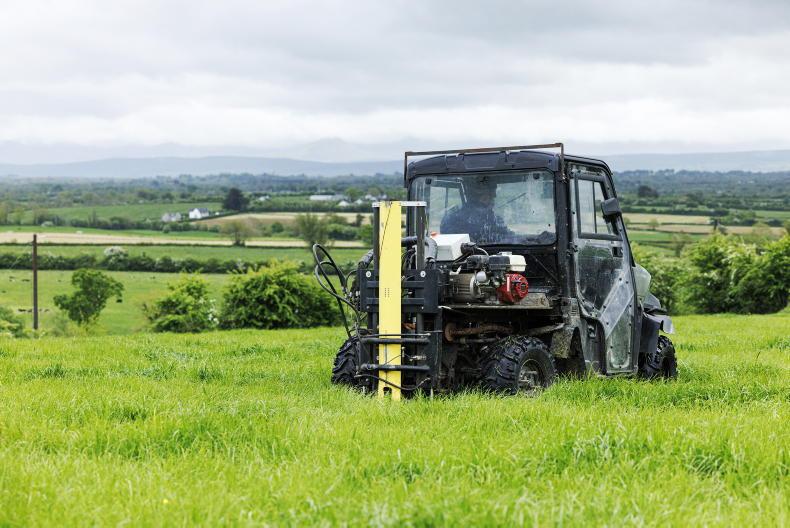
Mark Connolly of Farmteam Precision Agriculture soil carbon sampling for the Footprint Farmers programme on the farm of Martin Crowe, Carrigmore, Doon, Co Limerick. \ Donal O' Leary
Also this week, Siobhán Walsh publishes the first of the soil carbon results from our Footprint Farmers programme. It is the first detailed set of results to be published from a range of commercial farms. This investment in testing is not yet practical at farm level but for detailed comparisons to establish a baseline it is essential.
NI and Scotland are aiming to establish soil and above ground carbon on all farms. At present, farmers are not rewarded for improving carbon stocks despite the fact that soil, trees and hedgerows soak carbon dioxide.
Over one year ago Minister Eamon Ryan said that farmers were going to be paid to store carbon on their farms.
We are opening up the gates of Tullamore Farm next Tuesday (26 July) for our suckler and sheep open day, giving readers the chance walk and talk on a farm they have been reading about for the last five years. It is an opportunity to soak up the reality of a commercial farm that must pay the bills. Research and science are fine and necessary – but that’s not the job of Tullamore Farm. Demonstration of real-life farming where cows, calves, sheep and lambs are managed well to pay the bills and hopefully leave a profit is the acid test.

Tullamore Farm manager Shaun Diver will be sharing information on the farm's performance at next week's open day.
Changes to basic income supports and CAP are going to have big implications for Irish farming. Clearly, the new rates of organic payment announced on Wednesday will entice more and more cattle and sheep farmers to research organics as an option for their farming system. When the EU payment is such a big part of income for these farmers, it cannot be ignored. We must also be mindful that organics does not mean lazy farming and often takes a higher level of technical know-how and efficiency to deliver.
Is it an option for Tullamore Farm? Next week, we plan to have an answer to this and to discuss the policy changes that are coming down the tracks for suckler and sheep farmers and what impact they will have on farm profitability. Looking forward to meeting everyone on what promises to be a great day out.
Environment: farmers taking action on gases
In this week's edition, we carry an interview with Laura Burke, head of the Environmental Protection agency.
It’s hard to argue with the water quality results, but the fact that water quality had improved in 325 water bodies is very positive and shows that targeted action at local level is working. Surely the lesson is that broad brush strokes at a national level are unhelpful.
Burke calls for farmers to move from debate to implementation but – again – the recent facts published that almost 36% of slurry was spread using low emission technology shows farmers are actively investing in new equipment to reduce emissions and not waiting for the Government to set the sectoral target.
Burke’s call for widespread multi-species is premature until we get hard science, better management tools and in reality could reduce soil carbon stocks if we set up for more regular sowing.
Carbon results from Footprint Farmers

Mark Connolly of Farmteam Precision Agriculture soil carbon sampling for the Footprint Farmers programme on the farm of Martin Crowe, Carrigmore, Doon, Co Limerick. \ Donal O' Leary
Also this week, Siobhán Walsh publishes the first of the soil carbon results from our Footprint Farmers programme. It is the first detailed set of results to be published from a range of commercial farms. This investment in testing is not yet practical at farm level but for detailed comparisons to establish a baseline it is essential.
NI and Scotland are aiming to establish soil and above ground carbon on all farms. At present, farmers are not rewarded for improving carbon stocks despite the fact that soil, trees and hedgerows soak carbon dioxide.
Over one year ago Minister Eamon Ryan said that farmers were going to be paid to store carbon on their farms.





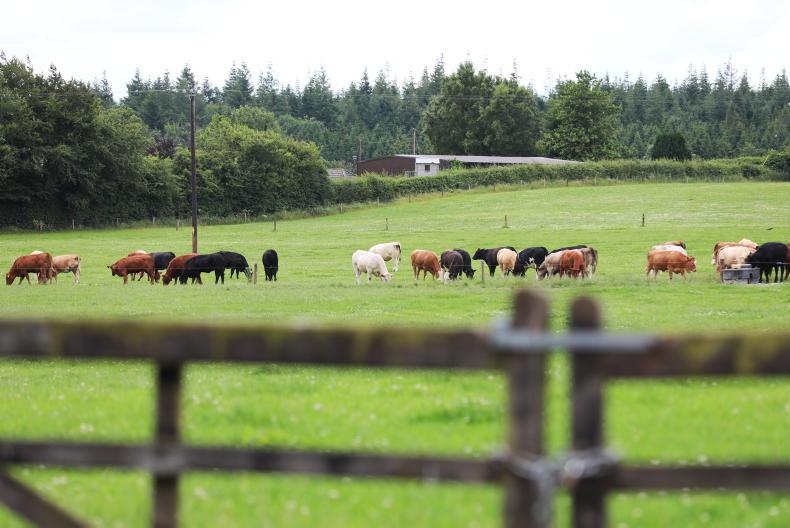
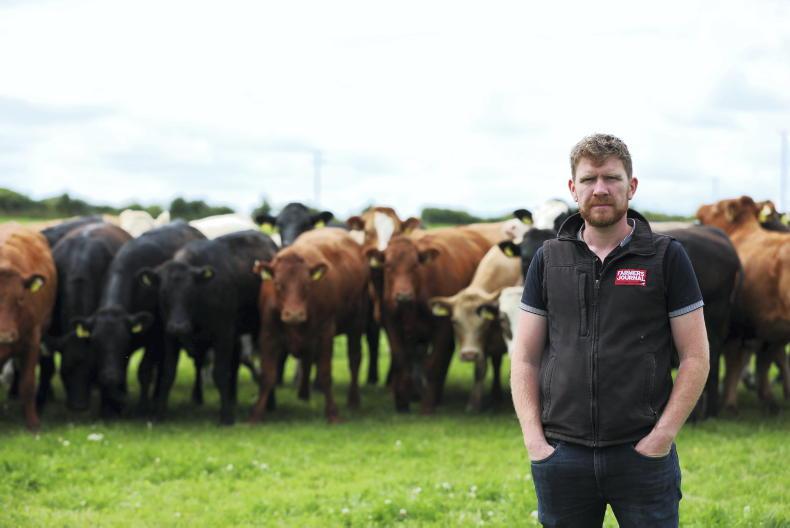
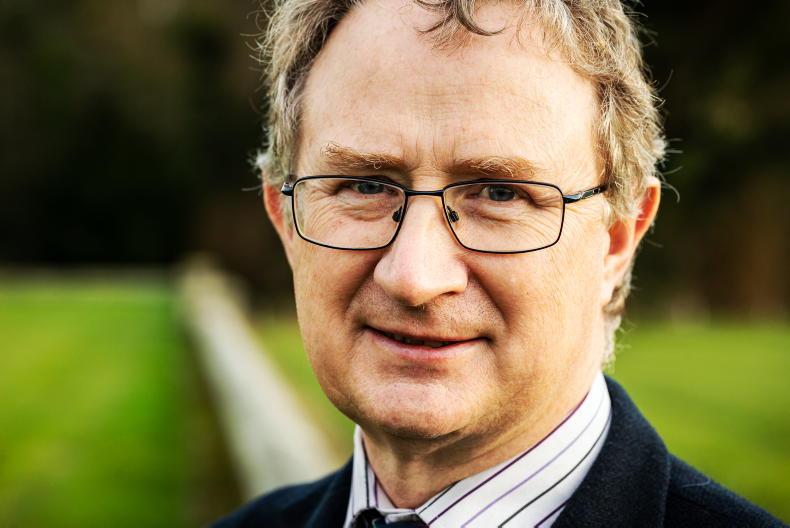

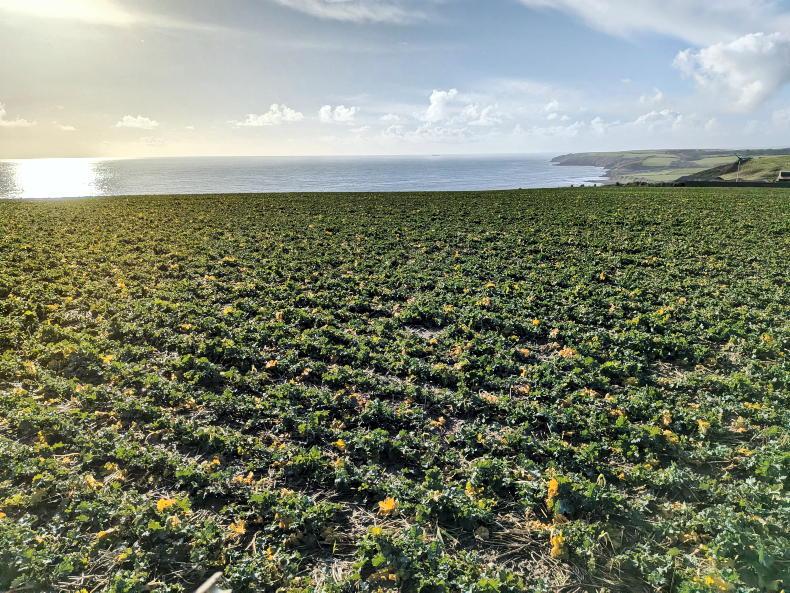
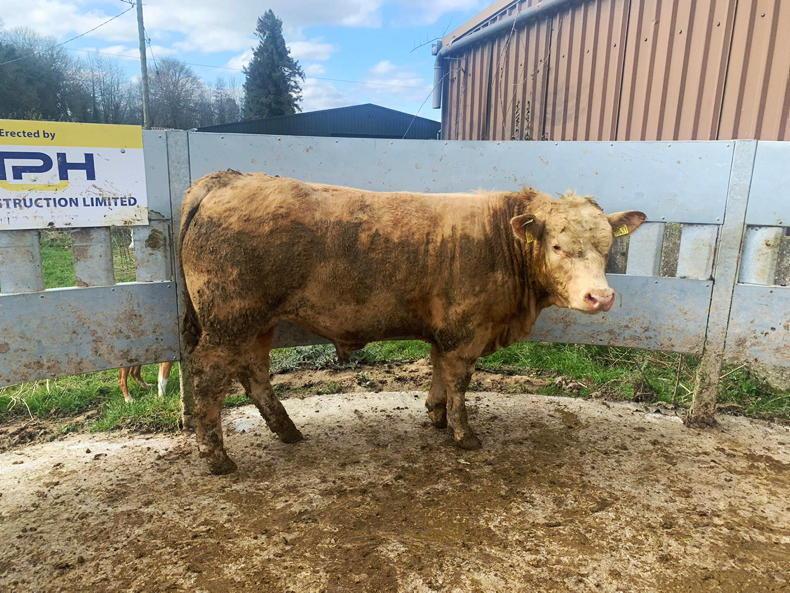


SHARING OPTIONS